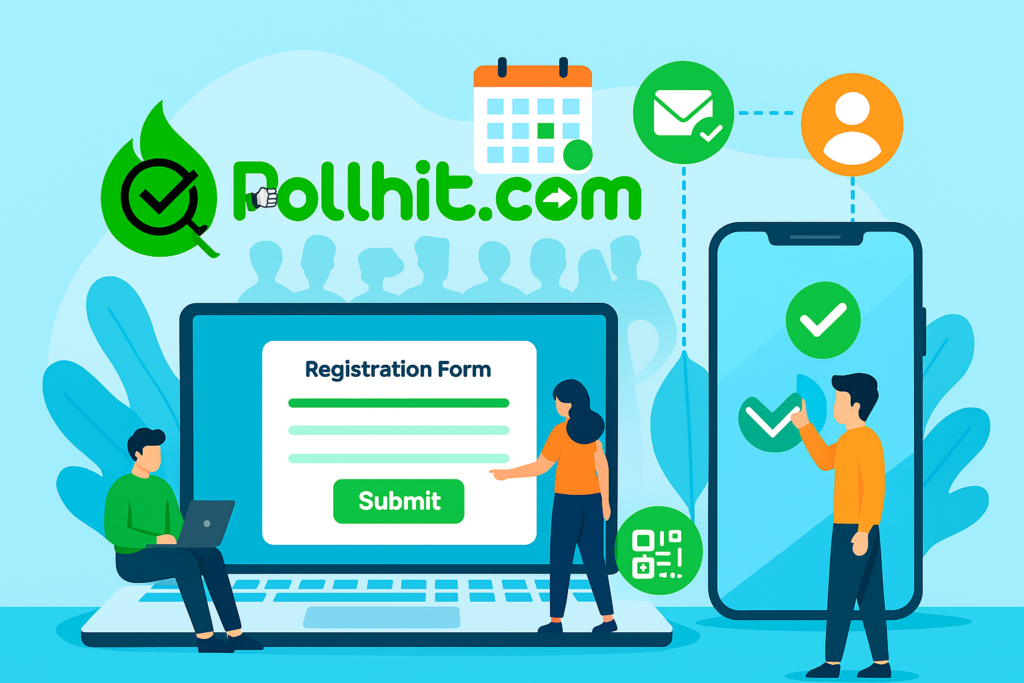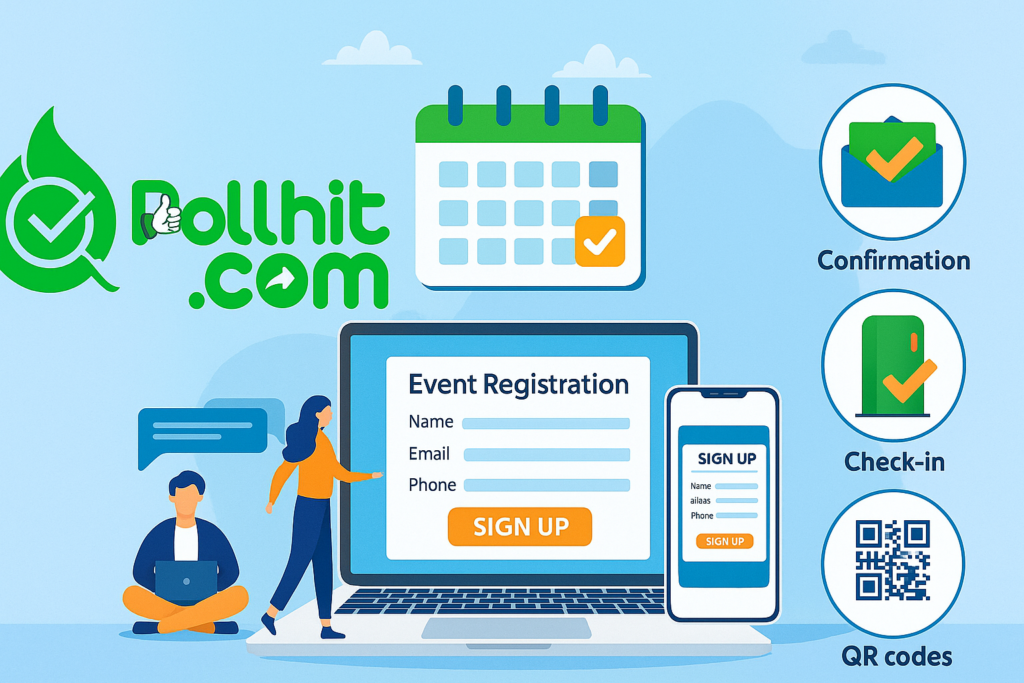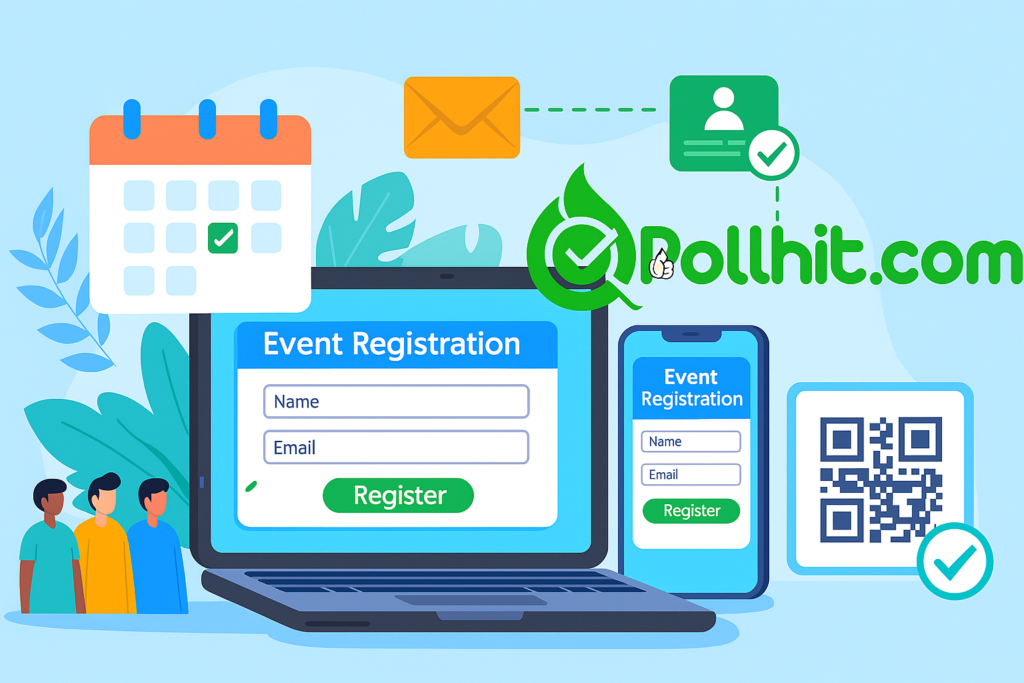Event Registration Form Best Practices in 2025: How to Maximize Signups and Streamline Attendee Management
Event Registration Form Best Practices in 2025: How to Maximize Signups and Streamline Attendee Management
Blog Article
In today’s fast-paced, digital-first world, hosting successful events means ensuring every step of the user journey is seamless—starting with your event registration form. Whether you’re organizing a webinar, conference, workshop, or fundraiser, your registration form is the first impression attendees have of your event. In this guide, we’ll explore event registration form best practices in 2025 that will help you maximize signups and streamline attendee management effectively.
Why Event Registration Forms Matter More Than Ever
A well-designed registration form is no longer just a formality. It’s a marketing asset and data collection tool. With users increasingly impatient and selective, even minor friction can result in abandoned registrations. Using smart tools like PollHit’s event form builder ensures you’re equipped with the latest digital features.

First Impressions Impact Conversion
Your form reflects your brand. A confusing or outdated interface can make users abandon the process, while a sleek and intuitive one boosts conversion.
Data Collection for Future Marketing
The right questions help you understand your audience and improve event experiences. This data also aids in post-event marketing.
Best Practices for Designing Event Registration Forms in 2025
1. Keep It Short and Focused
Only ask for information you truly need. Stick to essential fields such as name, email, and event preferences. Forms with more than 5 fields tend to have lower completion rates.
Pro Tip: Use conditional logic to show only relevant fields based on user input.
2. Optimize for Mobile Devices
With over 70% of users accessing websites via smartphones, ensure your form is responsive, touch-friendly, and loads quickly on all devices.
3. Use Multi-Step Forms for Better UX
Instead of one long form, break your registration into steps. For example:
- Step 1: Personal Info
- Step 2: Preferences
- Step 3: Payment (if applicable)
This approach reduces user fatigue and improves completion rates.
4. Leverage Autofill and Social Signup
Incorporating Google Autofill and social logins (LinkedIn, Google) can reduce friction by pre-filling user data.

5. Display Progress Indicators
Progress bars help users know how far along they are in the process and reduce abandonment.
6. Include Calendar Integration
Allow users to add the event to their calendar with one click (Google, Outlook, Apple). It improves attendance rates.
7. Highlight Event Details Prominently
Don’t assume users remember the event details. Add a quick summary with the date, time, location (if offline), or platform (if virtual).
8. Use Clear Call-to-Actions (CTAs)
Instead of a boring “Submit,” use action-based CTAs like “Reserve My Spot,” “Register Now,” or “Get My Ticket.”
What to Avoid in Event Registration Forms

Overwhelming Users with Too Many Questions
Asking for irrelevant data like job titles, company revenue, or full addresses can drive users away.
Lack of Confirmation
Always show a thank-you message and send a confirmation email. Tools like PollHit make this simple.
Not Testing the Form Before Launch
User-test your form across devices and browsers. Check for typos, broken links, and UX issues.
Using PollHit to Build the Perfect Event Registration Form
Why Choose PollHit?
PollHit’s event form builder offers an intuitive drag-and-drop interface, customizable templates, and seamless integration with CRMs and email tools.
- Built-in Templates: Start with proven layouts and adjust as needed.
- Real-Time Analytics: Monitor signups, bounce rates, and completion data.
- Automated Emails: Trigger confirmation, reminders, and follow-ups.
- GDPR-Compliant: Secure data collection with encryption.

Promoting Your Event Registration Form
Embed on Landing Pages
Add the form to your event landing page using PollHit’s embed code. Make sure it’s above the fold.
Share on Social Media
Share short links with strong CTAs on platforms like LinkedIn, Instagram, and Twitter.
Use Email Marketing
Include the form link in your newsletter or drip campaigns for personalized targeting.
Partner with Influencers and Communities
Let industry voices promote your event and link to the form directly.
Post-Registration Strategies
Send Automated Reminders
Tools like PollHit allow you to send timely reminders to registrants to reduce no-shows.
Collect Feedback
Post-event surveys help measure satisfaction and collect suggestions. Use PollHit surveys to keep feedback loops active.
Recommended Outbound Links:
- Event Marketing Best Practices – HubSpot
https://blog.hubspot.com/marketing/event-marketing
Learn how event marketing strategies drive attendance and engagement. - Google Forms Help – Create an Event Registration Form
https://support.google.com/docs/answer/6281888
Google’s official guide to creating forms, including event registration. - Event Planning Checklist – Eventbrite
https://www.eventbrite.com/blog/event-planning-checklist-ds00/
A useful reference for pre-event, during-event, and post-event organization. - GDPR Guide for Events – GDPR.eu
https://gdpr.eu/checklist/
Ensure your event registration form is compliant with data privacy laws. - Benefits of Online Event Registration – Cvent Blog
https://www.cvent.com/en/blog/events/benefits-online-event-registration
Why digital forms simplify event management and improve attendee experience.
Final Thoughts
An event registration form is more than just a box-ticking exercise. In 2025, it’s a critical part of your event marketing strategy. By implementing the above best practices and using tools like PollHit, you can streamline the registration process, improve attendee experience, and collect actionable insights for future events.
Start building your event registration form now with PollHit and take the first step toward event success!
Report this page